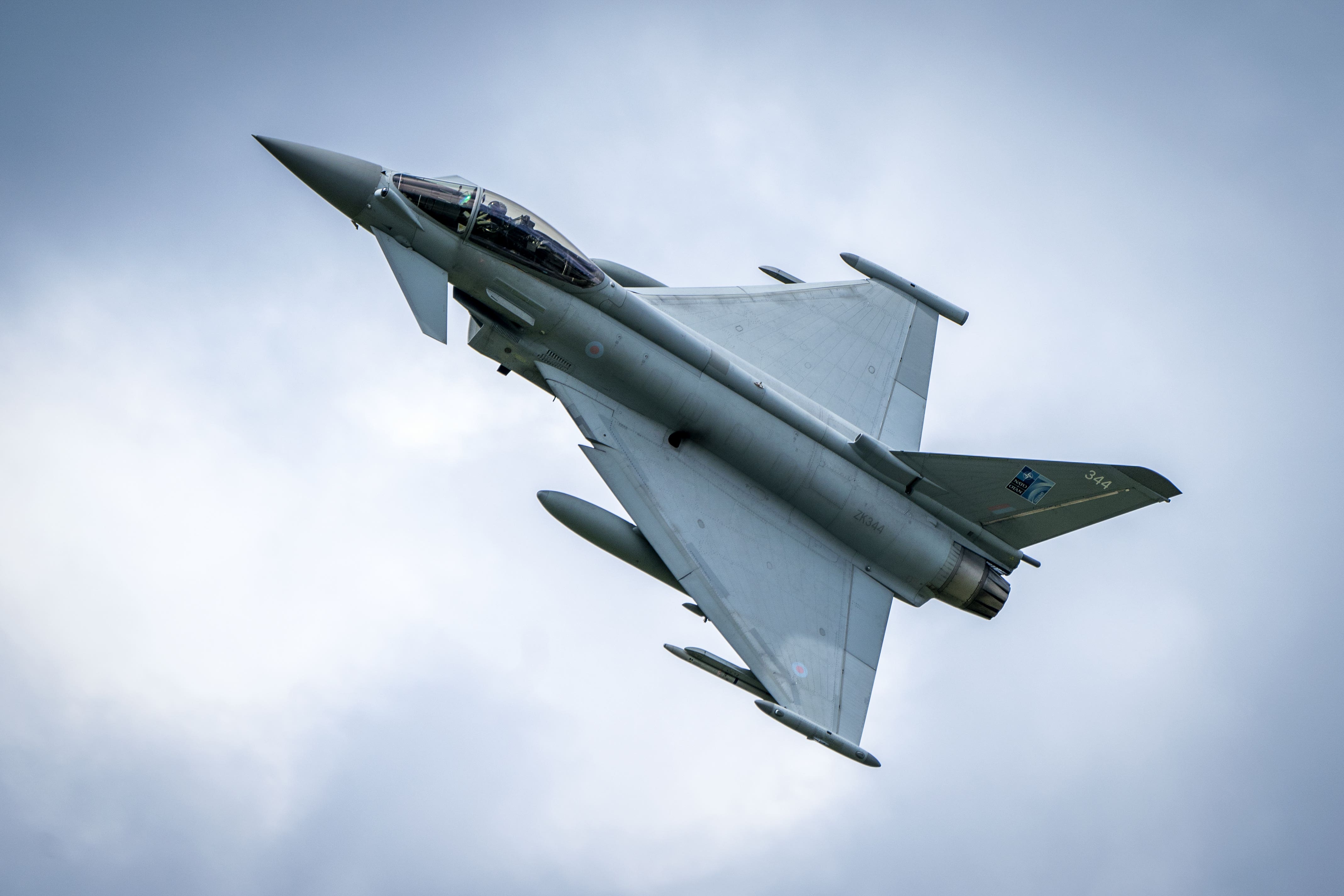RAF Typhoons home from Estonia deployment after intercepting 50 Russian aircraft
Personnel from RAF Lossiemouth have returned to Scotland after the four-month air policing mission.

Your support helps us to tell the story
From reproductive rights to climate change to Big Tech, The Independent is on the ground when the story is developing. Whether it's investigating the financials of Elon Musk's pro-Trump PAC or producing our latest documentary, 'The A Word', which shines a light on the American women fighting for reproductive rights, we know how important it is to parse out the facts from the messaging.
At such a critical moment in US history, we need reporters on the ground. Your donation allows us to keep sending journalists to speak to both sides of the story.
The Independent is trusted by Americans across the entire political spectrum. And unlike many other quality news outlets, we choose not to lock Americans out of our reporting and analysis with paywalls. We believe quality journalism should be available to everyone, paid for by those who can afford it.
Your support makes all the difference.Personnel from RAF Lossiemouth have returned to Scotland after a four-month air policing deployment in Estonia, during which pilots intercepted 50 Russian aircraft.
Typhoon jets flew quick reaction alert missions from Amari air base, intercepting Russian aircraft which came close to Nato airspace.
Known as Operation Azotize, the fighter jets flew for a combined total of more than 500 hours during the Estonian deployment.
Personnel were held ready to respond at a moment’s notice if any Russian aircraft posed a potential safety risk by approaching Estonian air space without a flight plan.
Members of 140 Expeditionary Air Wing have now returned to their base in Moray.
An Estonian commander at Amari air base recently said the noise of the Typhoons was the “sound of freedom” – saying he appreciated the RAF’s contribution.
The Estonian air force does not have fighter jets of its own to take on the air policing role, but a number of Nato countries have provided this since 2014 as part of a new commitment to the Baltic states.
The UK air wing’s deployment included a 21-day period where Russian aircraft were intercepted 21 times.
Defence Secretary Ben Wallace said: “Hundreds of RAF pilots and personnel have spent months away from their families, working round-the-clock alongside our allies to keep Europe’s skies safe.
“The UK’s successful leadership of Nato’s air policing mission in Estonia, resulting in the interception of dozens of Russian aircraft by the RAF, sends a strong message to (Russian President Vladimir) Putin that we stand united with our allies against any threat to our borders.”
When the RAF left, the air policing mission in Estonia was handed over to the Spanish air force.
Air Marshal Harv Smyth said: “While in Estonia, 140 Expeditionary Air Wing has excelled, participating in 12 major Nato and Joint Expeditionary Force exercises in addition to the air policing role.
“I am extremely proud of the whole force’s hard work and dedication.
“Now that they are back in the UK, their focus will be straight back to providing UK quick reaction alert, where they will help ensure the safety and integrity of UK airspace, 24 hours a day, 365 days a year.”
Last month, Major Tanel Rattiste, deputy commander at the Amari air base, near Tallinn, told the PA news agency that Nato provides freedom because “each time when we have a Russian Federation aircraft closing in to our borders, not only Estonia but the Baltics, then all of the time Nato – and this time the UK jets – are scrambled and they will go and intercept those flights”.